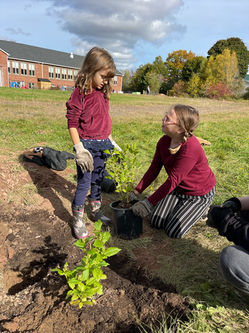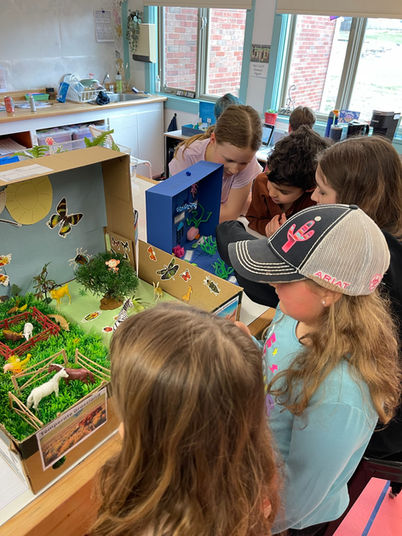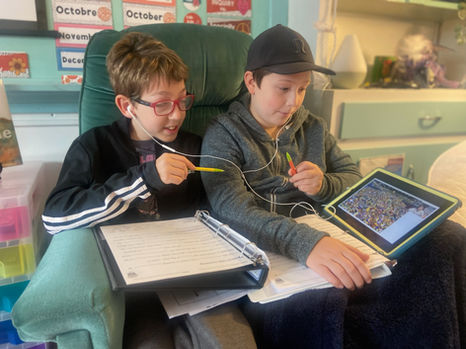Our Goals

To create a school experience that nurtures the whole child and cultivates a culture of empathy and social-emotional wellness. We aim to have students leave our program as well-rounded citizens who have had an enriching and healing school experience.

To keep tuition affordable and accessible for as many families as possible. We are in pursuit of creating a charitable foundation in order to raise essential funds to support the maintenance of the school as well as provide tuition support for families in need.

To create a literacy-rich atmosphere that is deeply rooted in the science of reading. To ensure all students not only learn to read but become avid readers excited about language and literacy! We also aim to be a beacon of support, information, and training for parents and teachers who want to effectively teach their children or students to learn to read.

Our Mission
At Riverbend we believe school should be an extraordinary experience for children. We also believe class sizes should be small. Students who are below, on, or above grade level have the opportunity to work and thrive in a small, self-paced learning environment with loads of personalized support. This allows them to meet their academic, social, and emotional needs. Welcome to our elementary and middle school program. We have a multi-age, modern classroom where our blended instruction and self-paced structure allow for mastery of all content areas. Although we are not a school designated specifically for dyslexia or other learning differences, many of our students over the years have attended our school with learning differences and are thriving! Although this is a general education program with high academic expectations for our learners - we believe ALL learners can be successful with the right supports in place.
At Riverbend, we have married direct, explicit instruction in structured literacy and math with inquiry and project-based learning in science, social studies, and health. We believe students deserve to be the driver of their learning. With the Inquiry and project-based model, students go far and above what the curriculum expectations are. Inquiry allows students to become truth seekers and investigators and make real-world connections to their learning every day. We want students to be equipped to solve the problems of the future, not just sponges who rely on teacher knowledge for what they can know and do! This begins in kindergarten and hopefully lasts a lifetime. The teachers are building guided inquiry based on the curriculum and appropriate modeling and questioning, but the students are shaping where they want to go with it. The teachers' role is no longer the holder of all of the information but rather the guide on the side who is steering students towards deep understanding and to their own conclusions by modeling how to ask great questions and adjust and be flexible with their thinking.
However, one area that is not inquiry-based is literacy and math. We believe deeply in the power of direct instruction when it comes to structured literacy and setting kids up to become confident, accurate, and fluent readers based on the 5 pillars of reading starting in kindergarten. (see more below about the 5 Pillars of reading and the science of reading). We use the science of reading and a very intentional structured literacy program that ensures students are being taught to read using science-based practices. However, one area that is extremely important for students to become readers is building background knowledge. Students who do not know many things cannot understand very well the things they read. This may sound simple, but it's critical. The ultimate goal of reading is to understand what you read and to make meaning. Readers who do not have good background knowledge of the world around them - how things work, real-life experiences, time in nature, a sense of their community, province and country - these students struggle to understand what they read. This is where the magic of inquiry-based learning and direct instruction in reading comes into play. The Inquiry and project-based learning that's happening in our school FUELS their background knowledge. This means once they learn to read words, they will have enough background knowledge to make meaning from what they read! It's a win-win









